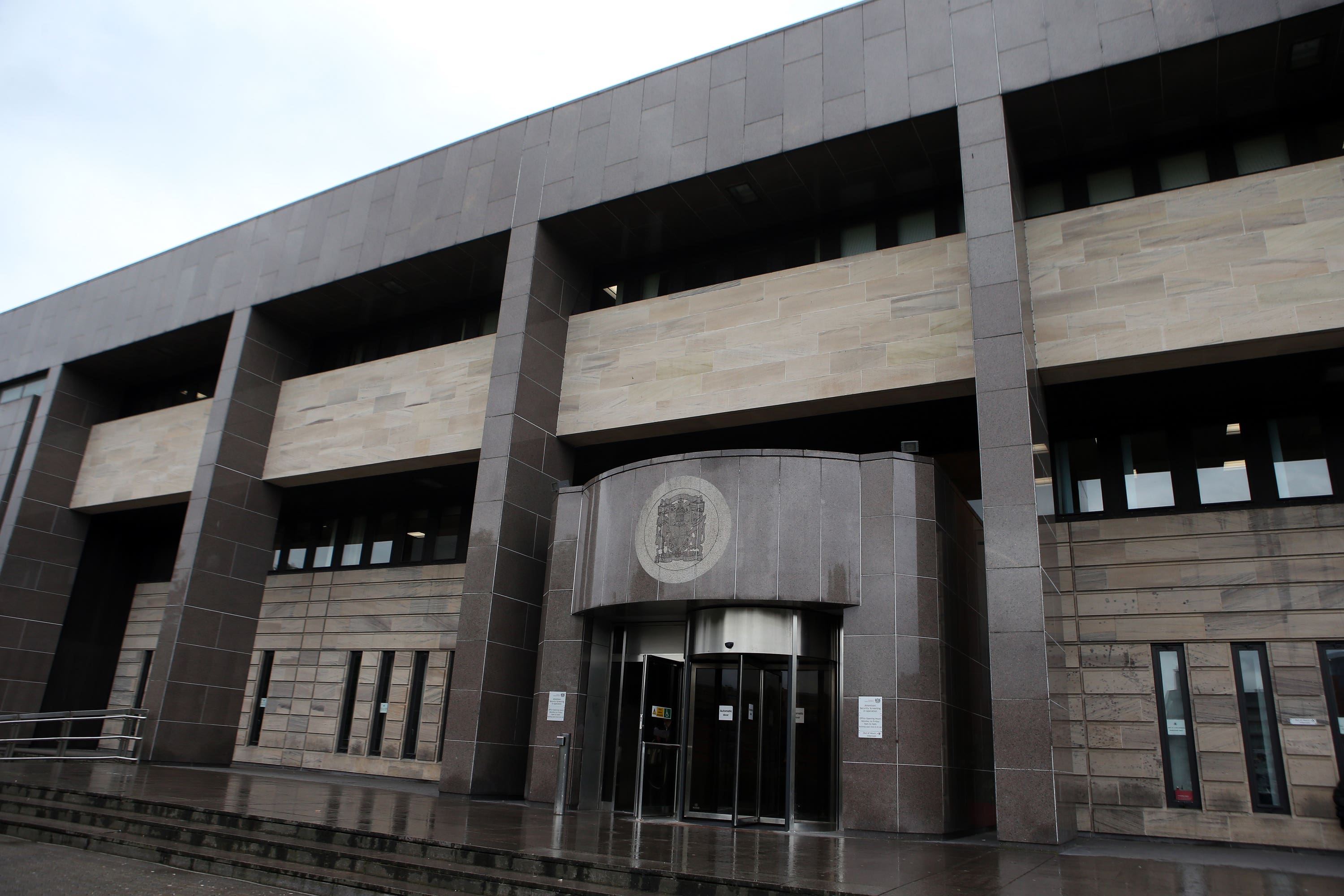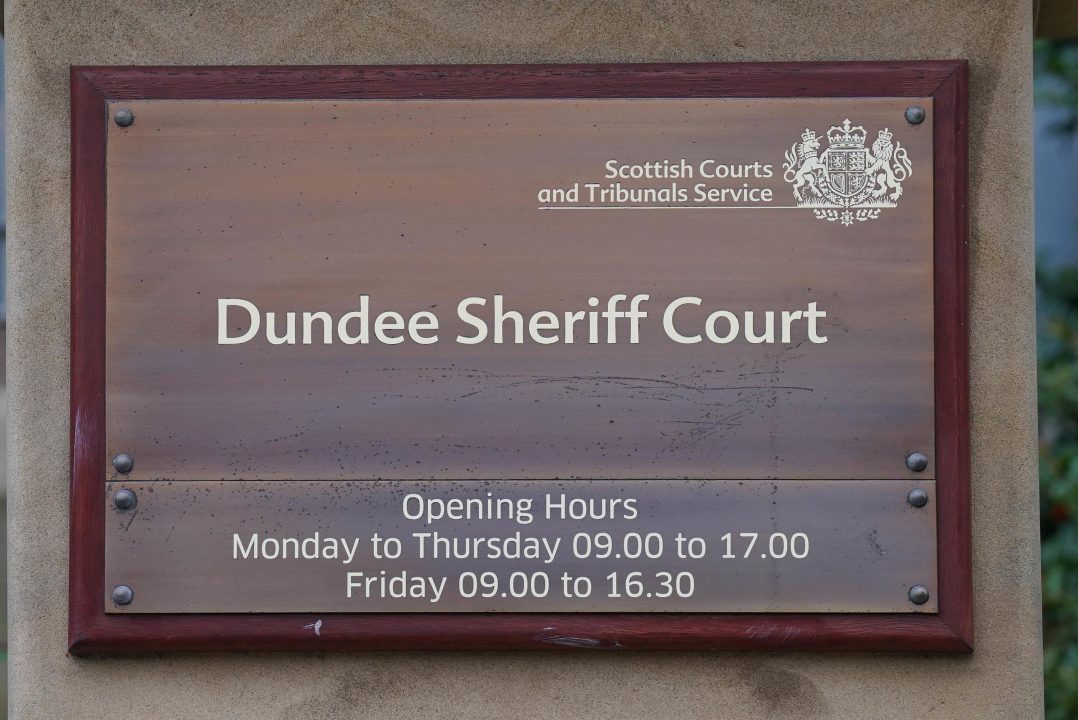A pilot scheme positively affected domestic abuse victims by reducing witnesses attending court unnecessarily by one third in a year, a report showed.
The Summary Case Management (SCM) Pilot, introduced at sheriff courts in Dundee, Hamilton and Paisley in September last year, will be expanded to Glasgow in 2024 after reducing the number of witnesses in domestic abuse cases by a third in a year.
Currently, the majority of witnesses cited in summary sheriff court cases will never appear at a trial, and only about one in ten police officers will appear to give evidence, with more than 200,000 officers cited as witnesses between 2021/22.
The pilot is intended to be less traumatic for victims and to free up police officers, by focusing on early guilty pleas and improved communication between lawyers in summary cases in sheriff court.
One woman, who was part of the pilot having suffered domestic abuse, said it had rebuilt her trust in the Scottish justice system, which she had previously perceived to be “failing”, and had given her the confidence to support a prosecution.
Feedback in the report said: “She wanted it noted that she feels the pilot will be extremely beneficial to people like her who have previously been victims of domestics on multiple occasions and she has a lot more faith in the Crown Office and Procurator Fiscal Service (COPFS) now.”
A response from Police Scotland said: “Police Scotland are seeing a reduction of first issue citations for domestic cases by up to 34% in all pilot courts.
“This equates to around 5,000 citations not being served on operational officers. This reduction is welcomed by Police Scotland as more officers are available to deliver a policing service to local communities.”
A new report showed due to early resolution at least 250 summary trials did not need to be assigned in pilot courts, with a 25% drop in the first citation of civilian witnesses in domestic abuse cases.
 PA Media
PA MediaThe pilot is intended to reduce the number of unnecessary hearings at summary level by facilitating early disclosure of evidence, early engagement between the Crown and defence and early case management.
It aims to reduce the number of cases set down for trial unnecessarily and to reduce the volume of late guilty pleas, and late decisions to discontinue proceedings.
Key evidence should be available to be released to the defence before the first calling in all domestic abuse cases in the pilot.
Specified disclosure material can be requested where it is considered it may make a material difference to a plea or the early resolution of issues in all non-domestic abuse cases.
Sheriff principal Aisha Anwar said: “It is improving the efficiency of our summary criminal courts to the benefit of complainers, witnesses, the accused and wider society.
“As a result we are now looking to roll out the pilot to other areas starting with domestic abuse cases in Glasgow Sheriff Court at the end of January 2024.
“The pilot can only operate successfully with the co-operation of those who work across the justice sector. I thank them for engaging positively with the pilot, which is having a significant impact on the number of unnecessary hearings and the number of witnesses cited in summary courts.”
Jennifer Harrower, deputy Crown agent for local court at COPFS, said: “It is clear from the report that several benefits have been achieved. Partnership working has addressed the concerns of many impacted by crime and made it easier to seek earlier resolution with more efficient agreement of evidence.
“The new approach taken by COPFS has been to engage at an earlier stage with victims of domestic abuse by offering more direct and proactive communications with prosecutors. Victims have told us this has made them feel listened to and included.”
Peter Lockhart, solicitor and member of the Law Society’s Criminal Law Committee, said: “Being provided with full disclosure at the earliest opportunity allows instructions to be taken from clients, with pleas negotiated where possible.
“If this is not possible, both Crown and defence will be aware at the earliest stage of the essential points in dispute at trial. This should result in further agreement of evidence and a reduction in the number of witnesses.”
Assistant Chief Constable Wendy Middleton, Criminal Justice, said: “Summary case management reduces the number of witnesses required to give evidence, minimising the impact on both victims and witnesses.
“We work hard to get it right for victims from the first point of contact, and this enables us to obtain the best key evidence to enable early resolution of these cases.
“Targeting cases, especially domestic abuse, in this way creates a supportive environment for victims and witnesses and reduces the trauma of giving evidence in the same room as their abuser.
“The current system means police officers spend considerable time on court business. Reducing citations for officers frees up valuable time for them to be in communities preventing crime.”
Follow STV News on WhatsApp
Scan the QR code on your mobile device for all the latest news from around the country


 PA Media
PA Media
























